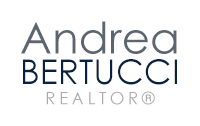When you purchase a home, the ownership of the property (i.e. the title) is transferred to you. Basically, title insurance protects you from fraud, undisclosed liens or any other issues that might interfere with your full ownership of your property.
You would generally buy title insurance when you purchase the home, although it can be purchased at any time during your tenure as homeowner. Sometimes homeowners go without title insurance, either thinking that it isn’t necessary or erroneously thinking that title ownership is covered in your home insurance. In fact, title insurance is something else altogether and should be something seriously considered by homeowners, because there is a lot of potential implications.
What Does Title Insurance Protect you from?
In a nutshell, title insurance protects you from “title defects”. Title defects are basically anything that would prevent you from owning the property free and clear. In contrast, homeowner’s insurance protects you from damage due to fire, damage caused by weather elements (storms, floods etc.) or theft.
In regards to the title on your home, some potential issues could include liens against the property due to unpaid debts from the previous owners, encroachments revealed by a survey done after you purchase, identity theft (i.e. someone steals your identity and takes out a second mortgage against your property fraudulently), easements/access over your property, non-compliance with zoning if your property fails to meet zoning by-laws and any other survey errors that were done by someone else.
Title insurance also provides “gap coverage” – i.e. insurance coverage during the period when the home closes and the home is officially listed on the title registry. It also provides survey coverage, meaning that many lenders may not require you to get an up-to-date survey when you purchase your property if you can show proof of title insurance.
What are the Types of Title Insurance?
Generally speaking, there are two types of title insurance: the Owner’s Policy and the Lender’s Policy. The Owner’s Policy protects the homeowner from the issues against owning the property free and clear as listed above. The Lender’s Policy protects the mortgage lender against similar issues, but also determines for them that, should the homeowner stop making their mortgage payments, there wouldn’t be interference from previous owners/liens etc. to stop them from placing their own lien against the property. It helps the lender mitigate the risk.
Title insurance can be bought for houses, condominiums, vacant land, co-ops, cottages, rental or leased properties and rural properties.
What is not Covered by Title Insurance?
It can be devastating to assume that you have insurance coverage, only to learn that you don’t have coverage for specific items in the event that you need to make a claim. To protect yourself, be aware of what title insurance doesn’t cover.
A big one is environmental hazards. For example, if it is determined that the soil on your property is contaminated, that does not fall under title insurance.
Similarly, coverage will not extend to known title defects (i.e. defects with title that you were made aware of before you purchased). It doesn’t cover native land claims, zoning by-law violations that occurred through your own doing (i.e. if you put on a renovation that violates by-law), and things not listed in public record. If something is discovered that would only be brought to light by a new inspection/survey, that isn’t covered either- for example if a new survey revealed that your property is smaller than you thought it was.
What’s at Stake?
Basically, if you don’t have free and clear ownership of your property, your ability to sell, mortgage or lease it could be compromised. That, of course has huge financial implications. There is also the possibility of getting tied up in court battling these issues, which could result in great cost as well.
Title insurance is covered in a one-time premium. The cost will vary depending on the value of your property, at what point in your homeownership you purchase it (i.e. at closing or down the road) and what insurance company you use. As with all insurance policies, it is a good idea to shop around.
Coverage will extend to the entire time that you own the property. It can also be passed to a spouse in a divorce or to your heirs through your will in the event of your death.
When you do purchase, ensure details are correct, like that your property is insured entirely and for the full value; make sure that the policy start date is the same as the home closing date.
Title insurance isn’t required in Ontario, but it is something that should be fully considered and understood before a homeowner makes a decision either way. It’s advisable to get support from your lawyer and/or your insurance broker to weigh the pros and cons.
Check out this helpful resource from the Province of Ontario on how title insurance works.

